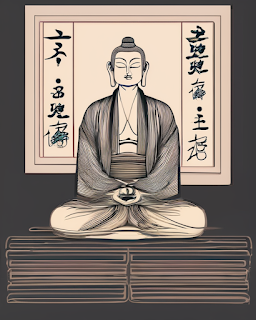Here is something I hear from my students all the time:
If I only had such and such, or so and so, then everything would be fine.
Listen. No one is coming to rescue you. No one out there will save you.
There is no magical event that can change your circumstance or make you more successful. YOU are the only person who is responsible for your current state of being and YOU are the only person who can change that state and improve on it.
In fact you can worsen your current state simply by believing that someone or something out there can, might, or will rescue you. That's faulty logic that you may have arrived at by using what psychologists call magical thinking.
You have to accept responsibility for your circumstance and acknowledge that if you don't like where you are and you hate what's happening to you, you MUST do something about it - take action, and do it NOW!
The fact is that having faith in a magical solution will only take you further into madness.
The first rule of self-help is: you got yourself into this mess.
The first time I heard this piece of news I was horrified. And not a little offended. At the time I was so poor and depressed that I could never accept any kind of responsibility for my predicament. How could I possibly believe I had made myself poor? That I had an awful job because I had chosen it? That I had a horrible existence because I had picked that life?
But it seems obvious now. Of course I had chosen all of those things. There was no one else to blame but myself.
It’s a hugely tough lesson to learn but one that is necessary to accept before you can move on. And you do have to accept it. You can't keep believing that only other people and fantasy events and mystical personalities can help you because then you will never learn for yourself.
Be smart. Get in charge of your life.
We are here to gain knowledge. Superstition is a transitional state that feeds us before enlightenment kicks in. Wisdom is based on logical empiricism. But clearly not for everyone. No matter how convincing the evidence, many people prefer the dark uncertainty of believing in the supernatural rather than the reassuring chaos of real life.
Religion makes perfect sense as a facet of evolution.
Back in time, as soon as we became self-aware, our brains began to sift through the incoming data and sort information into categories. The logical and obvious was accepted as such. Anything we didn’t understand went into the “supernatural” basket. Fine, it’s what we do.
The change comes when we attach “agency” or purpose to the supernatural. When we start to believe something or someone is causing mystery and coincidence, then that may become a problem.
Some of us still do it. I’ve known many people who ascribe supernatural agency to life in the pursuit of trying to make sense of everything. They see ghosts, daemons, spiritual beings, and gods with complex personalities and characteristics that are endlessly embellished into convoluted fantasy worlds reliant on increasingly bizarre thinking.
When we were living in caves without food or warmth, relying on the vagaries of nature to sustain us and reassure each other, it made perfect sense to assign chance and certain inanimate objects with supernatural agency, power, and force. As a result we ended up living in a world where impulse and irrationality replaced science, all in the pursuit of safety, a haven from the mystery and darkness and a fear of the unknown.
Having a deity and an agreed structure to superstition - that is, the definition of religion - gives hope to the righteous, and those who cannot grasp that ignorance and lack of control does not mean weakness.
It’s okay to believe in God if you have to but thinking He’s going to actually do anything for you goes against logic, dogma, and common sense.
We naturally seek meaning and purpose in chaos. It’s how our minds work. We look for order in chance events because this gives us a sense of control. But control is another aspect of ego. And ego is another side of vanity. Accepting we might have no control is not a bad thing. Indeed, it can be liberating, and is certainly not to be feared.
We tend to anthropomorphize everything. We see humanity and our motivations in everything around us, rightly or wrongly, we seek to understand and control reality, to quash uncertainty. Especially when our self-esteem and/or our confidence is low.
But we are fine when we don’t know what will happen.
We must assume that we are always in control of ourselves, our actions, and reactions.
If we want something to happen, it’s perfectly okay to believe that we can make that thing happen ourselves, without any need for a god, or a savior, an angel investor, or a rich benefactor, a literary manager or even a publisher - or any other perceived superior being that we think we need to make sense of our destiny.
Get a grip. Accept reality.
You only need you to save yourself.
Keep Writing!
Rob Parnell’s Writing Academy




